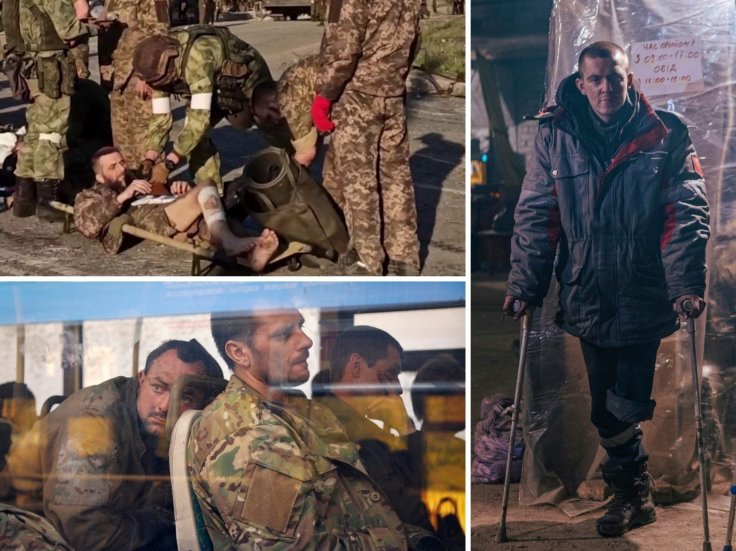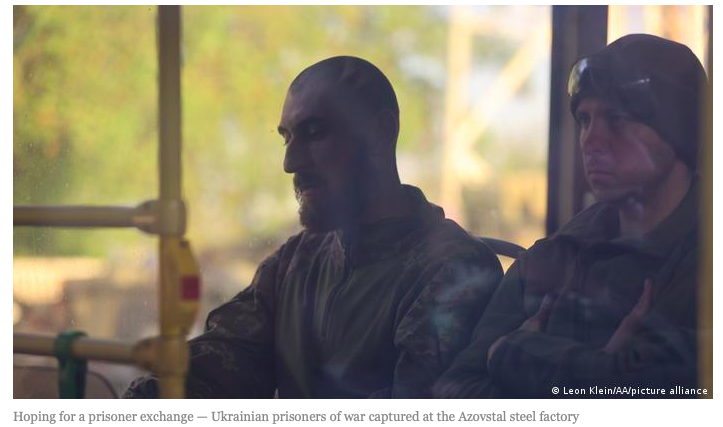The Russian Defense Ministry refuses to negotiate an exchange for 1,700 Ukrainian soldiers taken into custody for defending the Azov steel plant in Mariupol. The Ukrainian prisoners of war might be sentenced to capital punishment according to the Russian parliament Duma officials.
With Kyiv is attempting to arrange an exchange for its soldiers, Moscow appears to step back. The chairman of the State Duma, Vyacheslav Volodin, even dubbed the soldiers as "Nazi criminals", who cannot be handed over under any circumstances.
On 26th May, the Supreme Court of the Russian Federation is planning to designate the Azov Battalion a "terrorist organization." Closed-door negotiations on the motion are already being conducted in the General Prosecutor's Office.

At the same time, Leonid Slutsky, chairman of the Duma's Committee on International Affairs and a member of the negotiating team in talks with Kyiv, intends to lift Russia's 1996 moratorium on capital punishment to put the Azov Battalion on trial "The whole world should see that Ukrainian nationalists only deserve execution," he said.
Referring to the Geneva Convention on the treatment of prisoners of war, former NATO general Egon Ramms heavily criticized Russia's intention to execute Ukrainian soldiers underlining it as a breach of international law.
Article 13 of the Geneva Convention clearly states: "Prisoners of war must at all times be humanely treated. Any unlawful act or omission by the Detaining Power causing death or seriously endangering the health of a prisoner of war in its custody is prohibited, and will be regarded as a serious breach of the present Convention."

In an interview with ZDF, a German broadcaster, Ramms said: "The soldiers that were evacuated from Mariupol, including the wounded, are prisoners of war. When I hear Duma representatives loudly declaring soldiers deserve the death penalty, those Russian representatives would seem to have once again misinterpreted the legal situation."
According to DW news, Andreas von Arnauld, director and dean of law faculty at Christian Albrechts University in Kiel explained that only when prisoners of war have engaged in a war crime there can be an orderly and fair trial in the court of law conducted, but apart from this, they cannot be punished just for participating in an armed conflict.
Since Russia was suspended from the Council of Europe in March, there is no need for the country to abide by European Convention on Human Rights but even after withdrawal the convention remains effective for a period of six months.

"Human rights violations that are committed until mid-September 2022, and for which Russia is responsible ... could be taken to the European Court of Human Rights (ECHR)," explains Christina Binder, professor for international law and human rights protection at the Bundeswehr University Munich.
With the absence of a 'global police', the violations would more or less be reduced to sanctions by other nations. If it were individuals who had committed such crime, they could be tried in national courts but in this case it is the head of a state, who is immune to such trials. In such a scenario, Binder mentions that the International Criminal Court can step into the picture.
The Ukrainian human rights authorities are extremely concerned over the Russian decision to execute the Azov Battalion, reaching out to the United Nations the country has asked the organization to provide guarantees that Russia would adhere to the international human rights standards and treat the Ukrainian prisoners of war with dignity.









